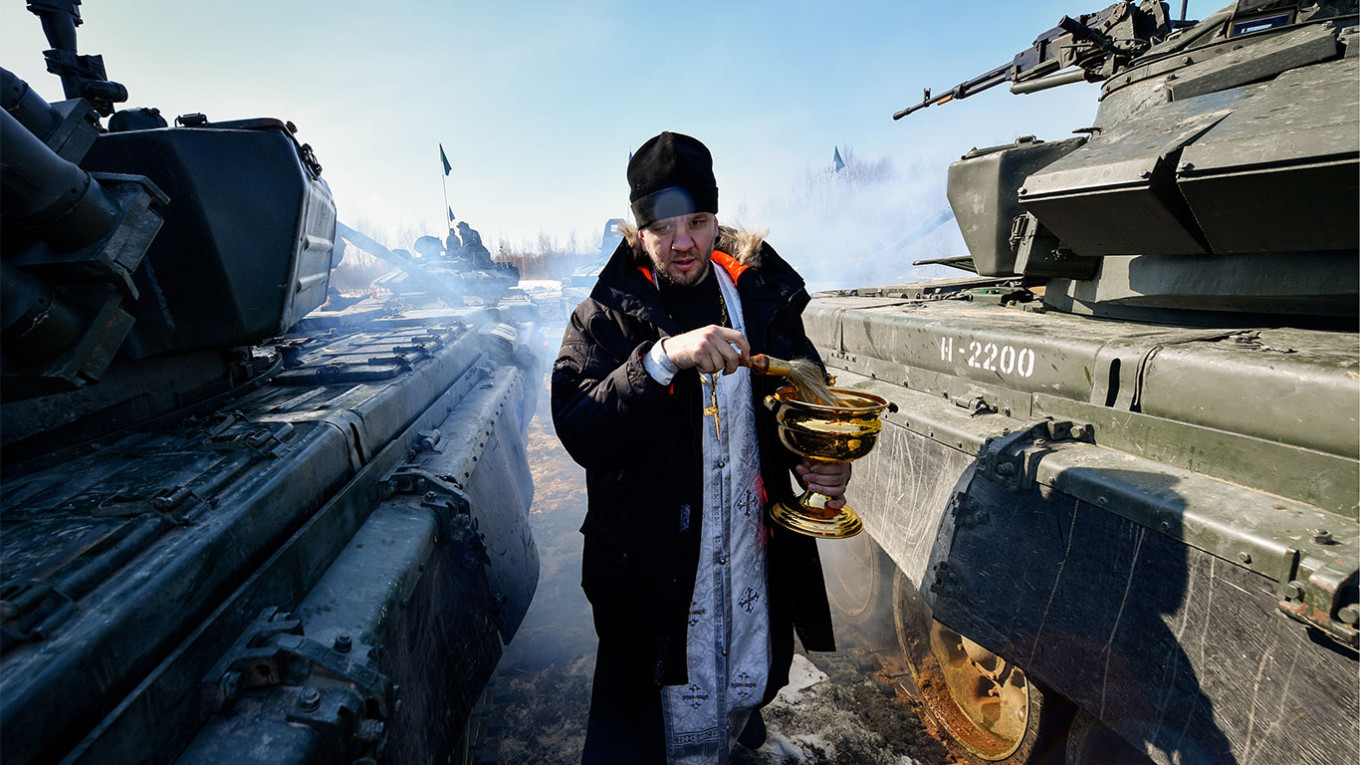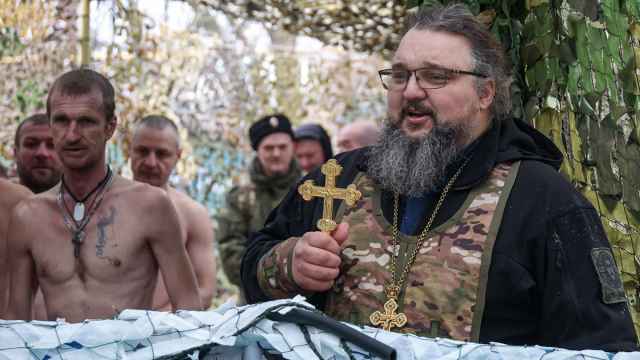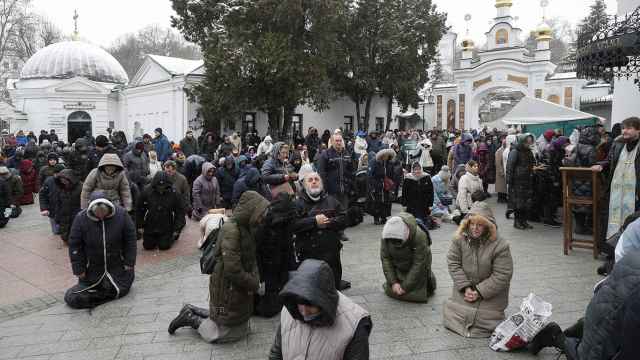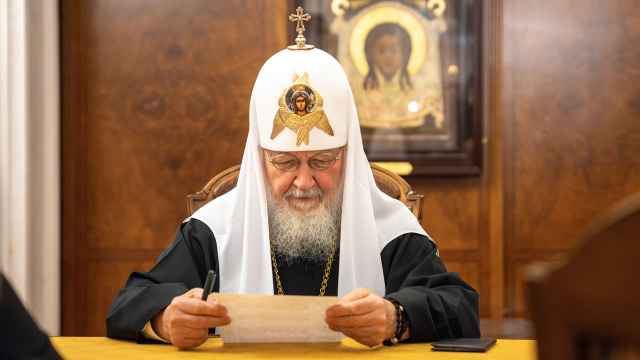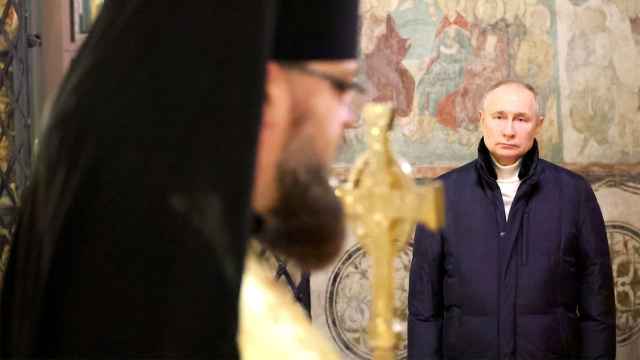Over the past decade, the Russian government has taken pains to present itself as a bastion of Christianity and traditional values. The Kremlin has used this image of religiosity and its close relationship with the Russian Orthodox Church as a mechanism to promote its interests domestically, as well as cultivate ties with similarly fundamentalist-minded supporters abroad.
Since the outbreak of the war in Ukraine, however, there have been noticeable cracks in the receptivity of this messaging strategy. Traditional religious allies of Russia in the West have begun speaking out against the war and, in particular, the Russian Orthodox Church’s support of it. This recent trend of criticism, and declining global support for both Moscow and the Church, presents a significant and under-appreciated challenge for Russia’s ability to promote its interests and influence.
In the U.S., Russia has long garnered support from various groups and figures in America’s conservative Christian communities. In these communities, Putin and the Church have successfully cast themselves as champions of Christian values, willing to do battle with what many parishioners perceive as a moral decay in the West. Russian propaganda has bolstered this perception, as well as the supposed danger of liberalism pushed by Western governments, which Russia portrays as a threat to conservative ideals.
In 2013, after Putin signed a law that banned the promotion of "nontraditional relationships" among minors, many prominent religious figures in the U.S. applauded the effort. Franklin Graham III, a well-known evangelist, praised the law as evidence of Russia’s dedication to traditional values while the U.S. "abdicated" its "moral leadership." In fact, Florida’s recently passed "Don’t Say Gay" bill echoes Russia’s 2013 law.
In the leadup to the war in Ukraine, the Russian strategy of courting Western support through religious means appeared to be paying off. Tucker Carlson asked live on air why Americans should hate Russia; Steve Bannon, on his show, argued we should be praising Putin for his anti-LGBTQ policies and for being "anti-woke." Even after the onset of war, religious figures such as American leaders of Russian Orthodox Cathedrals in the U.S. have repeated Russian talking points that assign blame to both Ukraine and the U.S. for the war.
And yet, within Russia and its Church, cracks in support have been forming since the initial invasion. Shortly after the war broke out, for example, more than 150 Russian Orthodox clerics issued an open letter calling for the war’s immediate end, stating that Ukrainians should be free to make their own choices. Though this is but a small portion of Russia’s thousands of Orthodox clerics, it represented an uncharacteristic break in Church messaging and flew in the face of the narratives coming from the Kremlin and Church leadership.
Patriarch Kirill, the leader of the Russian Orthodox Church, has been unwavering in his support of the war from the very start, and he has sought to justify Putin’s actions with a religious purpose, portraying the war in sermons as "an apocalyptic battle against evil."
Nevertheless, the Church removed its second most powerful figure, Metropolitan Hilarion, from his position after he expressed opposition to the war in January, a full month before it broke out. Kirill has even gone so far as to acknowledge the growing schism with the Russian Orthodox Church, explaining how he "understands" the decision by the Ukrainian Orthodox Church, which has historically been aligned with his Church, to cut ties.
Within the U.S., too, there are several signs of diminishing support for Russia from its traditional American Christian allies. Just the week before Russia invaded, Franklin Graham tweeted for Christians to pray for Putin so God could convince him to avoid war. Since February, Graham has come out against the war and has supported Western sanctions against Russia. Graham’s humanitarian organization, Samaritan’s Purse, is also operating in Ukraine to provide aid to Ukrainian soldiers and civilians.
Bryan Fischer, a former director at the American Family Association, who has in the past defended Putin’s actions, has recently praised Ukrainians in their fight, calling it a "Christian revolution." The Orthodox Church in America (OCA) has gone from calling for peace to directly blaming the war on Russia, arguing that "no Christian can remain impartial or lukewarm in the face of the suffering or remain silent when confronted with such evils as are being perpetrated."
The leader of the OCA, Metropolitan Tikhon, made his church’s anti-Russia, pro-Ukraine views explicit when he said in an interview that "when anyone attempts to justify the Russian invasion of Ukraine by pointing to Western decadence, they are only proving their own moral irrelevance."
Even globally, the World Council of Churches, which represents more than 580 million Christians, has condemned Russia’s role in the war in Ukraine, as well as the Russian Orthodox Church’s "misuse of religious language and authority to justify" it.
To be sure, support for Russia and its war has persisted among many religious conservatives in both Russia and the U.S., though in the latter case supporters tend to be fewer, and farther to the political fringe. These adherents still see Putin and his war as one to conserve white Christendom, and view Ukraine as an evil place because it pushing "woke ideologies" on its citizenry. But an important majority of Christians in the U.S. and elsewhere in the world now surely see Russia’s foreign policy — and the backing of that policy by the Russian Orthodox Church — as at odds with their core religious values.
This simple fact demonstrates a significant and striking decline in the influence of both the Kremlin and the Russian Orthodox Church. It is also an underappreciated strategic blow, as these populations were long receptive to this previously reliable messaging strategy by the Russian state.
A Message from The Moscow Times:
Dear readers,
We are facing unprecedented challenges. Russia's Prosecutor General's Office has designated The Moscow Times as an "undesirable" organization, criminalizing our work and putting our staff at risk of prosecution. This follows our earlier unjust labeling as a "foreign agent."
These actions are direct attempts to silence independent journalism in Russia. The authorities claim our work "discredits the decisions of the Russian leadership." We see things differently: we strive to provide accurate, unbiased reporting on Russia.
We, the journalists of The Moscow Times, refuse to be silenced. But to continue our work, we need your help.
Your support, no matter how small, makes a world of difference. If you can, please support us monthly starting from just $2. It's quick to set up, and every contribution makes a significant impact.
By supporting The Moscow Times, you're defending open, independent journalism in the face of repression. Thank you for standing with us.
Remind me later.



